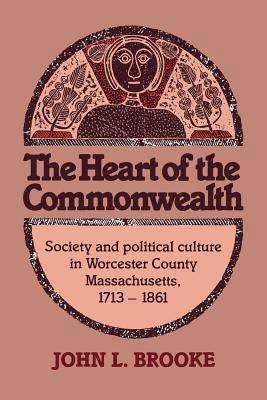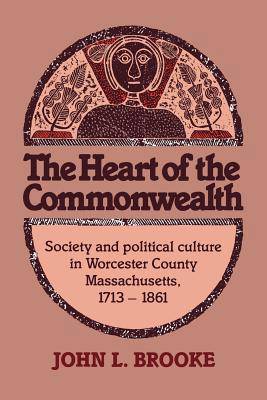
Je cadeautjes zeker op tijd in huis hebben voor de feestdagen? Kom langs in onze winkels en vind het perfecte geschenk!
- Afhalen na 1 uur in een winkel met voorraad
- Gratis thuislevering in België vanaf € 30
- Ruim aanbod met 7 miljoen producten
Je cadeautjes zeker op tijd in huis hebben voor de feestdagen? Kom langs in onze winkels en vind het perfecte geschenk!
- Afhalen na 1 uur in een winkel met voorraad
- Gratis thuislevering in België vanaf € 30
- Ruim aanbod met 7 miljoen producten
Zoeken
The Heart of the Commonwealth
Society and Political Culture in Worcester County, Massachusetts 1713 1861
John L Brooke
Paperback | Engels
€ 69,45
+ 138 punten
Omschrijving
One of the central controversies in our understanding of early America involves the place of republican and liberal thinking in polity and society. The Heart of the Commonwealth presents a synthetic view of the social grounding of republicanism and liberalism in Worcester Country, Massachusetts, from its settlement after the Peace of Utrecht to the eve of the Civil War, as this country's people passed through the formative fires of both national and industrial revolution. Drawing upon a wide range of sources and methods, the book examines the unfolding relationships among ideological discourse, political action, and the institutions and structures of everyday life. Most broadly, the book argues that a broad transition from a republican - or Harringtonian - consensus to a liberal - or Lockean - consensus was conditioned by countervailing episodes of insurgency, running from the Land Bank and the Great Awakening in the 1740s to the rise of political antislavery a century later.
Specificaties
Betrokkenen
- Auteur(s):
- Uitgeverij:
Inhoud
- Aantal bladzijden:
- 472
- Taal:
- Engels
Eigenschappen
- Productcode (EAN):
- 9780521673396
- Verschijningsdatum:
- 7/07/2005
- Uitvoering:
- Paperback
- Formaat:
- Trade paperback (VS)
- Afmetingen:
- 156 mm x 234 mm
- Gewicht:
- 653 g

Alleen bij Standaard Boekhandel
+ 138 punten op je klantenkaart van Standaard Boekhandel
Beoordelingen
We publiceren alleen reviews die voldoen aan de voorwaarden voor reviews. Bekijk onze voorwaarden voor reviews.









